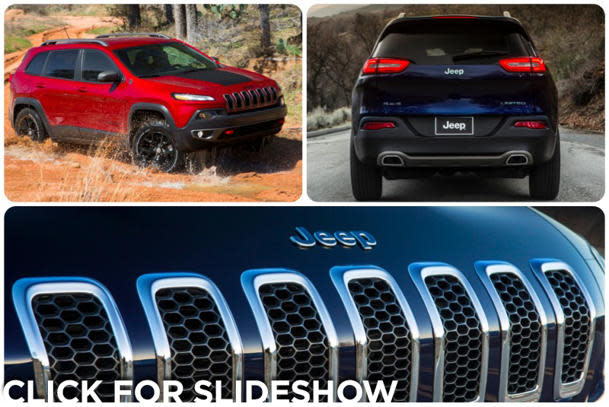 Motoramic
MotoramicJeep Cherokees missing in action as thousands stack up at factory
The 2014 Jeep Cherokee rolled into the spotlight to much debate in February, with its angular looks boldly moving away from the slab-cut Cherokees of yore. First assembly began in July, and reviewers drove the cars in August and September. Yet today, weeks after it was expected to hit the market, there's not a single Cherokee up for sale in any Jeep dealership in America — despite at least 19,000 having been built.
A search of Chrysler's nationwide dealer inventory system shows nine Cherokees listed as "in transit" to dealers, a small break in a giant logjam; Chrysler's own data showed it had built 18,849 Cherokees at the plant in Toledo as of September 30, and production has continued since then. Chrysler has offered few specifics about the delay, saying it involved "powertrain calibration" issues and vowing that it would not let buyers have a half-baked SUV:
The 2014 Jeep Cherokee has an all-new nine-speed transmission, two new powertrains, three advanced four-wheel-drive systems and has undergone more than 14 million test miles in order to ensure the vehicle meets our highest quality standards. Once the latest powertrain calibration is validated, the company will be able to quickly update the powertrain software on Cherokees already built and ship vehicles to dealership around the country in quantity.
Complex may be an understatement. The nine-speed transmission, an industry first designed by German firm ZF but built by Chrysler at its own factory in Indiana, has been expected to see duty in many Chrysler front-wheel-drive models as a key part of the company's plan to meet future fuel efficiency standards. The electronics and chassis of the Cherokee come from a platform shared with Fiat. And because it's a Jeep, the Cherokee has not just a typical all-wheel-drive system for its four- and six-cylinder engines, but an optional off-roadable four-wheel-drive unit with trick pieces like a locking rear differential — all of which has to work seamlessly with software controls.
Automakers occasionally have bumpy launches; last year Ford had to ship thousands of Lincoln MKZ sedans from Mexico to Michigan for repairs after factory troubles. And such delays hit the bottom line directly; automakers don't book a sale until a car leaves the factory, and dealers get antsy when they don't have the vehicles they expected to sell. But the alternative — selling cars with known problems that then require customers to go back to the dealership a few months later — would only shift Chrysler's reputation into low gear.

 Yahoo Autos
Yahoo Autos 

